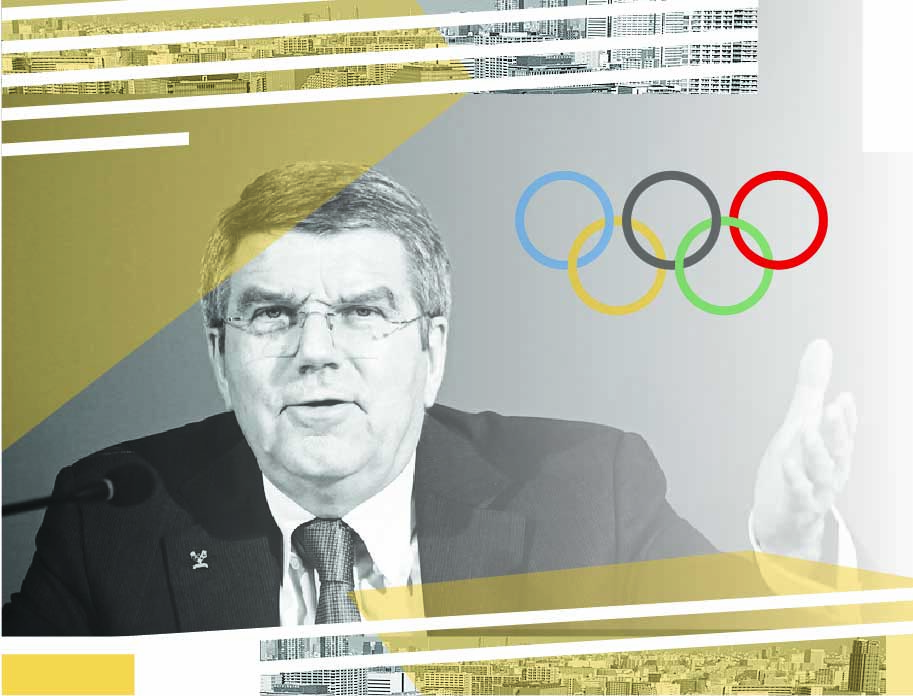
Dr Merryn Sherwood
Senior Lecturer in Journalism in La Trobe University. She is a former sports journalist, who has worked at two Olympic Games, and two Youth Olympic Games. Her research and teaching centres on disruption in media, with a focus on sport.
Twitter: @mes_sherwood

Section 2: Media Coverage & Representation
- Twitter conversations on Indian female athletes in Tokyo
- ”Unity in Diversity” – The varying media representations of female Olympic athletes
- The Olympic Channel: insights on its distinctive role in Tokyo 2020
- How do we truly interpret the Tokyo Olympic ratings?
- Between sexualization and de-sexualization: the representation of female athletes in Tokyo 2020
- Reshaping the Olympics media coverage through innovation
- An Olympic utopia: separating politics and sport. Primary notes after analyzing the opening ceremony media coverage of mainstream Spanish sport newspapers
- What place is this? Tokyo’s made-for-television Olympics
- The paradox of the parade of nations: A South Korean network’s coverage of the opening ceremony at the 2020 Tokyo Olympics
- Tokyo 2021: the TV Olympics
- Why we need to see the “ugly” in women’s sports
- “The gender-equal games” vs “The IOC is failing black women”: narratives of progress and failure of the 2020 Tokyo Olympics
- Ghana: Poor local organizing, and absence of football team dampens interest
- Megan Rapinoe: The scary Bear for many Americans?
- ‘A Games like no other’: The demise of FTA live Olympic sport?
- Temporality of emotionalizing athletes
- Fandom and digital media during the Tokyo 2020 Olympic Games: A Brazilian perspective using @TimeBrasil Twitter data
- Media wins medal for coverage of athletes as people, instead of entertainers
- Media frames and the ‘humanity’ of athletes
- Reporting at a distance. Stricter working conditions and demands on sports journalists during the Olympics
- New Olympic sports: the mediatization of action sports through the Olympic Games 2020 Tokyo
- Simone Biles, journalistic authority, and the ideology of sports news
- Representations of gender in the live broadcast of the Tokyo Olympics
- Americans on ideological left more engaged in Summer Olympics
- Nigeria: Olympic Games a mystery for rural dwellers in Lagos
- National hierarchy in Israeli Olympic discourses
- Equestrian sports in media through hundred Olympic years. A roundtrip from focus to shade and back again?
- Reshaping the superhuman to the super ordinary: The Tokyo Paralympics in Australian broadcasting media
- Is the Paralympic Games a second-class event?
- Tokyo 2020: A look through the screen of Brazilian television
- Is the Paralympic Games a second-class event?
- How digital content creators are shaping meanings about world class para-athletes
- How digital content creators are shaping meanings about world class para-athletes
- The male and female sports journalists divide on the Twittersphere during Tokyo 2020
- Super heroes among us: A brief discussion of using the superhero genre to promote Paralympic Games and athletes
- “Everything seemed very complicated”: Journalist experiences of covering the Tokyo 2020 Paralympic Games
- Representing high performance: Brazilian sports journalists and mass communication professionals discuss their philosophies on producing progressive Paralympic coverage
- Representations of gender in media coverage of the Tokyo 2020 Paralympic Games
It was billed as one of the top competitions of the Games, the showdown between America’s Katie Ledecky and Australia’s Ariane Titmus in the women’s 400m freestyle at the Tokyo 2020 Olympics. In a perfectly executed play, Titmus came from behind in the final lap to take the gold – but suddenly she found herself sidelined in the coverage.
In the stands her coach Dean Boxall had let loose with an unbridled celebration. Ripping off his mask and running from his designated area, he thrusted against the glass and threw up his hands, in moves he later said were inspired WWE wrestler The Ultimate Warrior.
In the next 24 hours, the moment went viral. Boxall’s exuberant celebration was the latest reaction meme. NBC Olympics, the broadcaster in the US, tweeted the video with the caption ‘when the pre-workout kicks in’ and others followed.
But in the few days after this the impact was dulled, as one by one viral tweets had copyright infringements put up and the vision disappeared. For example a tweet by Australian journalist Josh Butler that had 11.7k likes now has a message – ‘this content has been disabled by the copyright owner’. Instead, the only accounts that could use it were Olympics rights-holders and only for users in the geographical location.
It was a stark reminder how in the digital age the Olympics has never had more potential reach, but that the IOC’s reliance on TV rights agreements for cash significantly limits that digital reach during the Games.
The reason for this is not surprising, television rights still make up 73% of the International Olympic Committee’s revenue. It’s no wonder that Tokyo went ahead, without crowds in a city locked down in a state of emergency, when the main aim was to produce a broadcast product to fulfill the commitment to its rights-holders.
Given the amount paid for these rights, it’s also unsurprising that broadcasters try to protect these by lodging copyright infringement notices, and attempt to push the public to their own TV and social channels for impact. After all, they also bought digital rights in their packages.
But the lack of quick sports highlights on social platforms was clear from Tokyo. The official Olympics account could only post images after medal events, like this one. It’s a stark difference to most of the world’s professional sports leagues. The NBA’s approach for example is all about sharing social media highlights widely and quickly to a global audience.
This leaves Olympics fans to find content through their own national broadcaster, which may or may not have made them available. In Australia in 2016 broadcaster Channel 7 made Australian viewers pay for premium access through an app. In the UK in 2021, the BBC on-sold some events to to pay-TV channel Discovery.
Fundamentally in an era where the IOC is simultaneously trying to win over younger viewers by adding in sports like climbing and skateboarding, to limit the availability of Games footage to television broadcasters that are not favored by the younger generations seems like a challenge.
One answer may potentially be the over the top streaming services that have started to edge their way into the sports rights market dominated by traditional broadcasters, but they haven’t yet been able to do so in a major way.
In the end, Dean Boxall’s moment of fame managed to escape the grip of rights-restrictions, as it lived on in images and screenshots. For example, when the Australian state of Victoria reached a day of zero Covid-19 cases in August 2021, Victoria’s Chief Health Officer posted the image of Boxall against the glass in response to the official government tweet.
Whether the Olympics can similarly escape its lucrative but restrictive TV rights agreements to maximize its digital impact remains to be seen.

